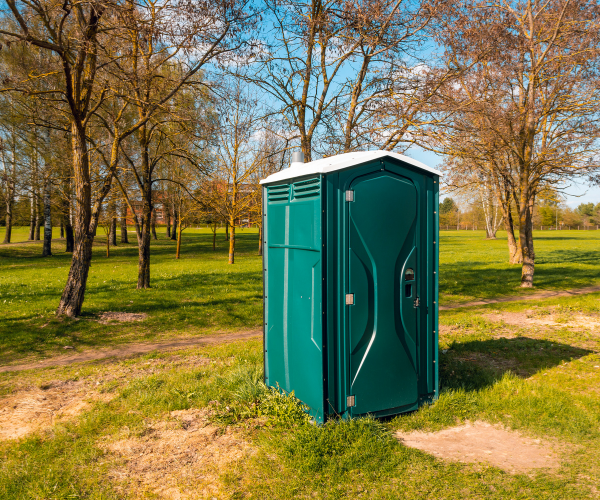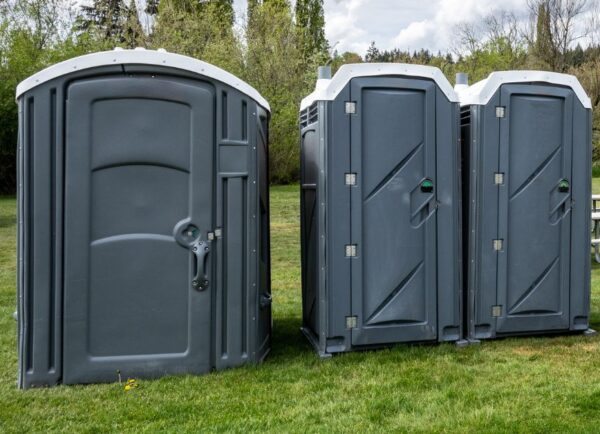Portable toilets offer numerous eco-friendly advantages that align with sustainable practices and environmental awareness. One of the primary benefits is water conservation, as traditional toilets use a substantial amount of water per flush, while portable toilets operate using minimal water through chemical treatment systems. This significant reduction in water usage makes portable toilets an environmentally sound choice, especially in drought-prone areas. Additionally, the waste management systems in portable toilets help prevent contamination of natural water sources, ensuring a clean and pollution-free environment. By using biodegradable chemicals, these units further reduce their environmental footprint without sacrificing sanitation quality. Another key advantage of portable toilets is their mobility, which allows them to be used in diverse locations, reducing the need for constructing permanent restroom facilities in areas that can be prone to overdevelopment. By minimizing the infrastructure footprint, portable toilets contribute to the preservation of natural landscapes and habitats. The materials used in the construction of portable toilets are often recyclable, and the units themselves can be reused multiple times, reducing waste and the demand for new resources. With advancements in green technologies, many portable toilets now incorporate solar-powered lighting and ventilation systems, enhancing their sustainability quotient even further. Furthermore, portable toilets support sustainable event management by providing effective sanitary solutions without the need for plumbing, thereby minimizing the environmental disruption normally caused by heavy construction work. Whether it is for outdoor festivals, construction sites, or remote locations, portable toilets offer a practical, eco-conscious alternative to traditional restroom solutions, contributing positively to the green initiatives that many corporations and individuals are striving to adopt. Their role in reducing carbon emissions associated with conventional sanitation facilities adds another layer of eco-friendliness, making them a socially responsible option for both community and commercial use.

Portable Toilet Rentals in Manchester, Tennessee
Call today for a free quote (423) 719-5081
Portable Toilet
Fast, Easy, & 100% Free To Get Started
Over 20 Years of Experience
With over 20 years of experience, we have been the trusted provider of portable toilet services in Manchester. Our strong ties to the community and unwavering commitment to quality make us your go-to option for reliable services.
Unmatched Quality Service
Our commitment to quality service sets us apart, ensuring each portable toilet meets high cleanliness and durability standards. Experience unrivaled attention to detail and customer satisfaction with every rental.
Fast, Reliable Delivery
Count on us for rapid delivery tailored to your event or job site needs. Our reliable team ensures swift, dependable service, reducing delays and enhancing convenience.
Reliable Portable Toilet Solutions in Manchester, Tennessee
Call for a Free Quote Today
(423) 719-5081
Discover the best portable toilet service in Manchester, Tennessee, known for its outstanding reliability and local ownership. At the heart of every event, our portable toilets are trusted for construction sites, festivals, weddings, and private parties all across Manchester and its neighboring areas. We pride ourselves on being dependable, ensuring that every unit meets strict quality standards. Our local knowledge gives us an edge in providing tailored solutions for your sanitary needs. Choose us for a seamless, efficient, and locally focused experience. Our reputation for excellence has been earned through years of committed service to our community. Count on us for clean, modern portable toilets with superior service.


Standard Portable ToiletOur standard porta john rental units are durable and reliable for any commercial build site, housing development, public works project, or remodel job.Features include dome lighting, grated floors, and an “In-Use” locking mechanism for privacy and comfort.Regularly maintained, inspected, and cleaned by FusionSite at your location.

Wheelchair Accessible RestroomsDeveloped as an alternative to full ADA-compliant restrooms, the Liberty is a spacious, wheelchair-accessible unit that can also be promoted as a family-sized restroom.Includes a patented flat-floor system for easy wheelchair access and maneuverability.Handrails, paper holder, and rotary latch are designed for simple, intuitive end-user operation.

Portable SinkPortable hand washing stations are essential for keeping your work site sanitary and clean.Features hands-free foot pumps, liquid soap, and paper towels.Perfect for job sites without water hookups, these units can handle hundreds of washes between services.
We Proudly Serve
Standard Portable Toilets
Offering standard portable toilets for construction sites and outdoor events in Tennessee.
High Rise Portable Toilets
Efficient high rise portable toilets for construction projects in Manchester, Tennessee.
Restroom Trailers
Experience comfort with our high-quality restroom trailers at The Bolles Co. events in Manchester.
Roll off Dumpsters
Reliable roll off dumpster services available for waste management in Manchester by The Bolles Co.
Septic Tank Cleaning
Expert septic tank cleaning services ensuring safety and hygiene across Tennessee.
Grease Trap Cleaning
Professional grease trap cleaning for restaurants and food services in Manchester, Tennessee.
Fencing & Barricades
Secure fencing & barricades available at The Bolles Co. to enhance safety throughout Tennessee.
Residential Storage
Convenient residential storage solutions in Manchester, catering to all your storage needs.
Manchester Portable Toilet Solutions
Getting a quote and arranging delivery for a portable toilet in Manchester has never been easier. Start by using the form provided at the top and bottom of this page, requiring just a few details like your name, contact information, and event specifics. Alternatively, you can click on any of the 'Get A Quote' buttons placed throughout our site for immediate assistance. Our dedicated team quickly processes your request, offering you a seamless experience. Whether you're preparing for a construction project or planning an outdoor event, we provide convenient, hassle-free service from start to finish. Our efficient system ensures that you receive a competitive quote tailored to your specific needs in no time. Trust us to deliver outstanding service, making us your go-to choice for portable toilets in Manchester.

In Manchester, our portable toilet services excel by adding a touch of local charm and professionalism to any event. Whether you're enjoying the vibrant atmosphere of Bonnaroo Music and Arts Festival or visiting Old Stone Fort State Archaeological Park, you can count on us to handle your restroom needs seamlessly. Our units integrate perfectly into any setting, offering dependable sanitation solutions that reflect Manchester's distinctive character. From annual festivals to family gatherings, our portable toilets are a crucial component of any outdoor occasion. Their sturdy design ensures functionality in any weather, making us a trusted choice in the area. Choose us for unmatched reliability, local expertise, and dedication to quality, ensuring your guests are always content.
When it comes to portable toilet services in Manchester, we emerge as the undisputed leader. Our focus on customer satisfaction and our deep roots in the community provide a service quality that is unmatched. We understand the specific needs of local events and deliver sanitary solutions that resonate with Manchester's appeal. Let us enhance your event with clean, reliable, and state-of-the-art portable toilets. Our reputation as the best in the business is built on years of experience and a dedicated team committed to making your experience hassle-free and enjoyable.
Our company is synonymous with fast, reliable portable toilet services that Manchester residents trust. From swift delivery to immediate response times, we prioritize getting your units to you right when you need them. With a range of options suitable for varying event sizes, our services are designed to meet every demand efficiently. Your satisfaction is our top priority, and our quick, dependable services speak to this commitment. Rely on us for not just speed, but also exceptional quality and service that makes any event memorable for the right reasons.
Learn More About Our Portable Toilet Services in Manchester
Renting a portable toilet in Manchester is simple and designed for your convenience. Start by filling out the forms located at both the top and bottom of our webpage. These forms ask for basic details such as your first and last names, phone number, and email address. This streamlined approach ensures you can quickly provide the necessary information to process your rental. Additionally, 'Get A Quote' buttons are strategically positioned throughout the website, offering another fast and efficient way to begin the rental process. We take pride in delivering a seamless experience from start to finish, beginning with our ability to offer customized quotes once you submit your details. Our team promptly reviews each submission, ensuring you receive a response that meets your specific needs. With us, you can expect a smooth process, backed by our expert team, ready to assist at any point. Whether hosting small backyard gatherings or organizing large corporate events, our portable toilets provide both versatility and reliability. By clicking 'Get A Quote', you not only expedite the rental process but also access a wealth of resources geared towards making event planning easier. Trust our expertise in providing high-quality solutions tailored to your needs in Manchester.
Understanding the delivery timeframe for portable toilet orders can be crucial for effective event planning. Typically, once an order is confirmed, our team works diligently to ensure rapid deployment within a standard delivery window of 24 to 48 hours. This timeframe may vary depending on the size and scope of the order, as larger events or remote locations might require additional coordination. However, our commitment to efficiency and reliability means we aim to accommodate your schedule as closely as possible. For last-minute needs, we offer expedited services designed to meet unexpected demands, reflecting our dedication to customer satisfaction through flexible delivery options. Rest assured, communication is key to our operation, and we provide real-time updates on the status of your delivery, ensuring you are well-informed throughout the process. Planning for important occasions often involves meticulous arrangements, and we recognize the importance of reliable sanitation facilities. By maintaining a stocked inventory and an efficient logistics system, we bridge your needs with immediate service, making us a preferred partner in the rental industry. Trust in our experience to deliver quality units without delay, regardless of the event scope or location.
Yes, we are equipped to service any type of event or construction services. Our offerings encompass a wide range of solutions, catering to festivals, sporting events, weddings, corporate gatherings, family reunions, and any special occasion you can envision. Our luxury restroom trailers and porta-potties are designed to meet diverse needs, ensuring both functionality and comfort. For construction sites, we provide reliable roll-off dumpsters and secure fencing and barricades, crucial for site safety and cleanliness. Our ADA units ensure accessibility, while portable sinks and hand sanitizer stations enhance hygiene standards across all operations. These services not only accommodate the practical requirements of your event but also enhance the overall experience for attendees. Choose us as your comprehensive service provider, ready to assist with a range of portable sanitation solutions that are customized to your specific event or construction project.

